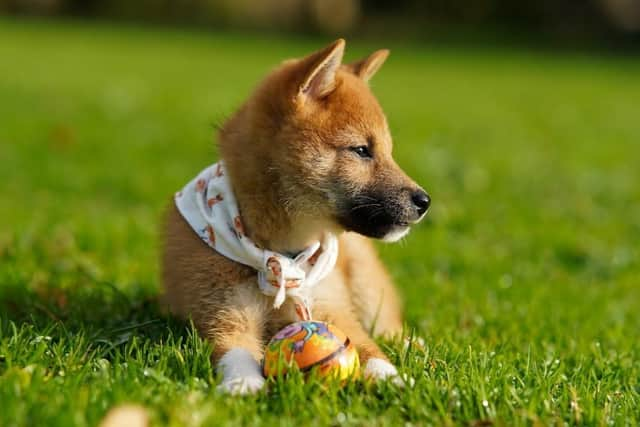How to get rid of the smell of dog urine from artificial grass
and live on Freeview channel 276
For pet owners, with hot weather comes a lingering dog urine odour in the garden.
That’s why the team at WeThrift have provided tips on neutralising and cleaning dog urine from your fake outdoor grass.
Mix water and baking soda


Advertisement
Hide AdAdvertisement
Hide AdWhen your furry friend uses the artificial grass as a toilet, it can leave some residue on the fibres causing the smell of dog urine to appear. One easy way to remove this smell is by mixing a solution of water or vinegar and baking soda.
Mix the solution in a separate bowl and evenly distribute it across the artificial grass. Leave to soak for a few hours and rinse thoroughly with warm water. It’s important not to let your pets near the grass until it has been rinsed, if ingested the baking soda can be toxic.
Top Tip; Start by testing the mixture on a small area to make sure it won’t cause any damage to your artificial grass.
Use a gentle, pet-friendly disinfectant to remove any lingering odours
Advertisement
Hide AdAdvertisement
Hide AdDilute your disinfectant with water, decant into a spray bottle and apply it to your fake grass. Allow the product to set for about five minutes before using a hose to rinse away the solution. It's important that when using a disinfectant on your artificial grass, you find a product that is pet-friendly and won’t cause any harm to your pup if ingested and to rinse thoroughly to protect sensitive paws from irritation.
Top Tip: A TikTok trend has surfaced of users pouring washing up powder onto their artificial grass, and while this will remove the odour, this could cause serious health problems if your dog ingests it and can cause skin irritation. So avoid using this method, instead find a cleaning product suitable for pets, for example, Zoflora.
Introduce a bi-weekly cleaning schedule
If your pet is regularly heading out to do their business on the fake grass, then cleaning it every week or every other week is a good idea to keep on top of it. A weekly wash doesn’t require any products and can be done using a power wash, hose or watering jug.
Top Tip: Before using any cleaning products or water on your artificial grass, use an outdoor brush or hoover to remove any loose leaves, dirt or rubbish - doing so will help make the process easier and reduce mess.
Use an enzymatic cleaning product
Advertisement
Hide AdAdvertisement
Hide AdTo clean and remove the smell of dog urine from your home and back garden, an enzymatic cleaner is a great solution. These cleaners contain beneficial bacteria that break down the molecules found in materials like urine, faeces and food that cause smells and stains.
While enzyme cleaners can be used for all stains around the home and garden, they’re most commonly found in the home of a pet parent, since they are great at odour-busting.
Top tip: Enzyme cleaners work amazingly well at cleaning artificial grass and removing the smell of dog urine, this is because rather than simply covering bad smells, they eliminate the odour, unlike most fragrant cleaning products.
Mix your own citrus spray for an eco-friendly alternative
A simple, eco-friendly and cost-effective way to reduce the odour of dog urine is to create a citrus spray. Mixing 2 tablespoons of lemon juice and four cups of water into a spray bottle and coasting the artificial grass with a light layer will act as a natural deterrent. Once the spray has been applied, let it sit and rinse with warm water to remove any leftover residue.
Create a designated toilet area
Advertisement
Hide AdAdvertisement
Hide AdFind a part of your garden that you are happy for your dog to use as a toilet - make sure that the area is not on the artificial grass and instead on soil, stones or other natural materials. Start by creating a designated area using a small fence to create a perimeter, lay down some cheap dog-safe stones or wood chips. When your dog uses the area, reward it with a treat.